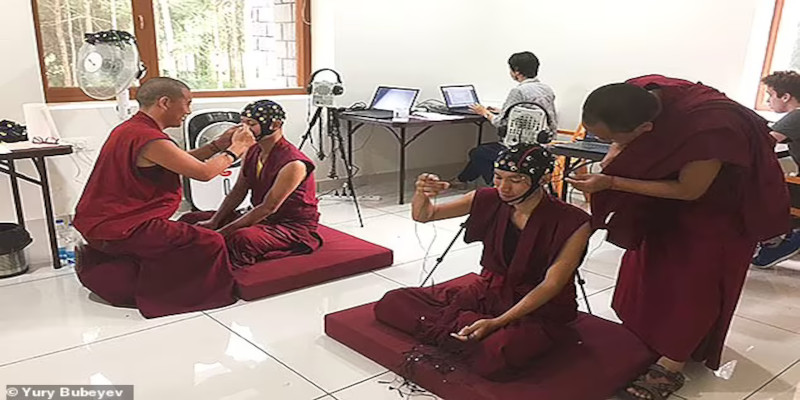Dharamshala, 9th June: Tibetan monks are being studied by Russian scientists in the hopes of providing advice to astronauts on future long-distance space journeys. Experts at Moscow State University are investigating old techniques for placing the human body into a ‘semi-lethargic state – suspended animation,’ which lasts for weeks before returning to normal. The electrical activity in the monks’ brains during intense meditation is also being studied. In addition, the team is investigating the phenomena known as ‘tukdam,’ or ‘posthumous meditation,’ in which monks are certified clinically dead but sit erect for days or weeks without showing any signs of deterioration.
His Holiness the 14th Dalai Lama has given his blessing and approval to the research, which is about to resume following a hiatus imposed by the pandemic. Professor Yury Bubeyev, a leading long-distance space travel planner, believes that ‘hibernation’ could be crucial to reaching Mars after traveling further out. His Holiness the 14th Dalai Lama confirmed that such a procedure exists, according to the professor, who is also a psychologist. ‘For the first time, it was proven that the brain of a meditating person may entirely switch off from external stimuli,’ according to one finding. A mix of Tibetan monk’s traditional methods and other technologies, according to Russian researchers, could be the key to long-distance space flight. Cooling the body with the inert gas xenon, hypothermia, and the use of medications to attain the maximum effect of hypobiosis for several months and exit without side effects are among the other options.
‘Many approaches are being investigated that could help humans achieve their ambition of reaching Mars with the fewest losses for the body,’ said Dr. Bubeyev, 65, of Russia’s Institute of Biomedical Problems, which led the MARS-500 experiment simulating a manned flight to Mars. Since 2017, he added, a group of Russians has been working with Tibetan monks, including scientists from the Bekhtereva Institute of the Brain and the Institute for Advanced Research of the Brain at Moscow State University.
Image Courtesy: dailymail

